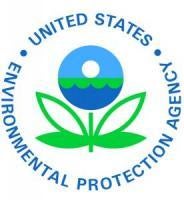WASHINGTON – The U.S. Environmental Protection Agency (EPA) has awarded $50 million for clean diesel projects as part of its ongoing campaign to reduce harmful emissions in the air and better protect people's health. These efforts will replace, retrofit or repower more than 8,000 older school buses, trucks, locomotives, vessels, and other diesel powered machines. Reducing emissions from existing diesels provides cost-effective public health and environmental benefits while supporting green jobs at manufacturers, dealerships and businesses across the country.
Diesel engines emit 7.3 million tons of smog-forming nitrogen oxides (NOx) and 333,000 tons of soot annually. Diesel pollution is linked to thousands of premature deaths, hundreds of thousands of asthma attacks and millions of lost work days. While EPA's standards significantly reduce emissions from newly manufactured engines, clean diesel projects funded through these grants will work to address the more than 11 million older diesel engines that continue to emit higher levels of harmful pollution.
From 2008 to 2010, EPA has awarded nearly $470 million to more than 350 grantees across the nation under the diesel emissions reduction program (also known as DERA). The grant-supported clean diesel projects have cleaned or replaced more than 50,000 vehicles and equipment nationwide. Grants under DERA, in addition to the clean diesel program grants, include:
· National Funding Assistance Program grants
· Emerging Technologies grants
· SmartWay Finance Program grants
· Direct State Allocations
Every state will receive funding for clean diesel projects through direct state allocations. Additionally, EPA plans to award more than 50 grants across the nation. This year for the first time, the following territories can now receive direct state allocation funds: Puerto Rico, Guam, the U.S. Virgin Islands, American Samoa, and the Commonwealth of the Northern Mariana Islands. EPA’s National Clean Diesel Campaign works cooperatively with state and local air agencies, tribes, communities, environmental groups, and the diesel industry to help control diesel emissions.
More information on the National Clean Diesel Campaign, including a list of grantees:http://www.epa.gov/cleandiesel




 />i
/>i
